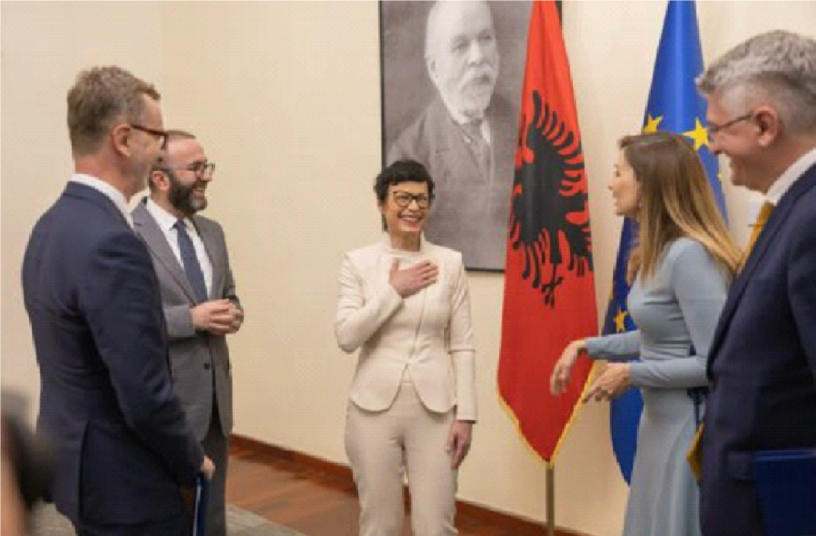The visit of the European Union Enlargement Commissioner, Marta Kos, to Albania has reignited debates on the country`s progress toward EU membership. During meetings with Albanian political leaders, she confirmed that Albania`s path to the EU is “secure and genuine“, acknowledging the country`s progress in implementing the necessary reforms for integration. However, a fundamental question remains: Are the government`s objectives for EU membership by 2030 truly realistic, or are we witnessing a politically driven discourse motivated by internal electoral factors?
Reforms and Challenges in Albania’s Negotiation Process
Prime Minister Edi Rama has declared that his government aims to complete negotiations by 2027 and provide Albanians with a European passport within the decade. While this statement reflects a legitimate aspiration eagerly anticipated by citizens, it faces numerous technical, legal and institutional challenges. The integration process does not depend solely on the Albanian government`s political will but on a set of criteria that must be met. So far, Albania has opened negotiations and made progress in key areas such as justice and foreign policy, but it still needs to address reforms in the economy, public administration, the fight against corruption, and the rule of law. One of the major challenges remains judicial reform, which, despite some achievements, is still perceived as influenced by political interests. Marta Kos specifically highlighted this issue, emphasizing that the implementation of these reforms is more crucial than merely approving them on paper.
On its part, the opposition takes a critical stance on the integration process, accusing the ruling majority of using reforms for political gain and undermining its role in democratic institutions. The Commissioner`s meeting with opposition representatives in Albania highlighted concerns related to parliamentary democracy, government transparency, and the integrity of electoral processes. Allegations of voter intimidation, the use of public administration for electoral campaigns, and the involvement of organized crime in elections are troubling. If proven, these issues could negatively impact the negotiation process. Therefore, strict EU monitoring of reform implementation and the guarantee of free and fair elections remain crucial.
Geopolitics and the Real Prospects of Membership
Geopolitical dynamics play a fundamental role in EU enlargement. While the integration process may have gained momentum due to tensions in Eastern Europe and the EU`s need for greater stability in the Balkans, this does not make membership automatic.
EU member states remain divided on enlargement, with some advocating for a faster process and others insisting on deep reforms before accession. Thus, while Rama`s statement about a European passport within the decade is an optimistic message, the political reality and the technical aspects of integration suggest that the path remains long and challenging. Albania must focus on genuine reforms and ensure that integration is not merely a political promise but a process based on concrete achievements and democratic stabilty.
In sum, Commissioner Kos`s visit reaffirmed the EU`s support for Albania but also underscored that the integration process cannot rely solely on rhetoric. The fulfilment of key reforms in justice, democracy, and the economy will be the determining factors in Albania`s European future. The path remains open but difficult, and the key question remains: Will Albania manage to catch the train of integration within this decade, or will it once again remain at the station of political promises?
Written by our correspondent A.T.



